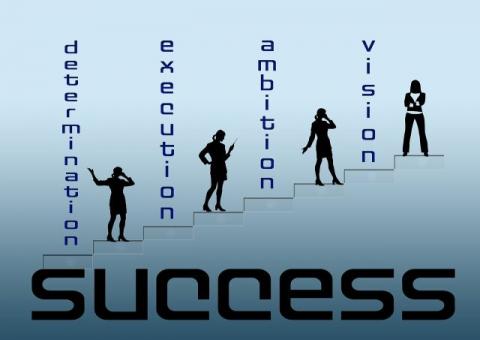National Plan for Increasing and Developing Human Capital in High-Tech
Prime Minister Lapid:
“I welcome this proposal and commend the cooperation with Innovation Minister Orit Farkash and Education Minister Dr. Yifat Shasha-Biton.
We are committed to dramatically strengthening the Israeli hi-tech market. Hi-tech education from a young age, as well as expanding representation and roles, are essential steps. This is right morally and it is right economically.”
“Our government is not talking about preserving the status quo, but about breakthroughs. Israel has the characteristics and the potential to be one of the ten most successful countries in the world; this plan is a good start.”
Innovation Minister Orit Farkash Hacohen:
"Upon assuming office, I set for myself the goal of giving equal opportunity to all Israeli children and of integrating populations into Israeli high-tech. To this end, I have initiated an education plan – together with the Education Minister – in schools and kindergartens that started this year, in 600 classrooms and approximately 1,500 kindergartens.
The government decision to adopt this important plan will need to continue and expand under the next governments for the benefit of the children of Israel. Regarding the employment of more Israelis in high-tech, the government decision that I have submitted today adopts and gives validity to the Perlmutter Report that I initiated, and adopts the employment goals that I determined as government policy for the coming years. I thank the Prime Minister and the Education Minister for their cooperation."
Education Minister Shasha-Biton:
"Exposing kindergarten-age children to innovation, technology and spoken English, alongside a new plan for middle schools, is important in making the field more accessible to all Israeli children, and will assist in reducing gaps and creating equal opportunities. I thank the Innovation, Science and Technology Minister and the Prime Minister for their open and productive cooperation."
The main points of the plan:
1. A high-tech education plan starting this year: The plan for instilling technological, cognitive and digital proficiency that is necessary for integration into the 21st century labor market. The pilot plan will start this year in approximately 600 8th grade classrooms in around 120 schools and approximately 1,500 kindergartens. Next year, the service will expand to additional 8th and 9th grade classrooms while prioritizing the periphery until the plan spreads to all schools.
2. Under-represented populations: The government has adopted the Innovation Minister's goals of adding 4,500 personnel from the Arab sector, 2,500 from the ultra-orthodox sector, with at least 45% of Innovation Authority trainees being women.
3. The Perlmutter Report: The government has adopted the interim findings of the committee chaired by Dedi Perlmutter under which it has been recommended – inter alia – to redefine high-tech professions so as to include technology professions in traditional sectors such as banking.
4. The Israel-Tech Plan: The plan will locate and bring to Israel people with relevant education for high-tech work in Israel who are eligible under the Law of Return. The plan will tangibly strengthen the Israeli high-tech industry, boost links with world Jewry and serve as positive diplomacy for the State of Israel. The goal is to integrate at least 1,500 workers in 2022-2026.
5. Increasing the number of foreign experts: To increase by 2,000 the number of foreign experts coming to Israel to work for high-tech companies in 2022-2026. In order to assist in meeting this goal, the Innovation Authority will operate high-tech support centers that will help high-tech companies in removing bureaucratic impediments to bringing in high-tech workers from abroad.
6. Forming an inter-ministerial team to remove impediments – that will do an in-depth evaluation of the bureaucratic impediments facing every target community that is interested in coming to Israel and which will offer recommendations on how to reduce the impediments.
7. Additional high-tech in academia: A 20% increase in the number of university students studying high-tech professions and a 30% increase in the number of pre-university preparatory program students studying high-tech professions.
8. Gender equality in the industry: An Innovation, Science and Technology Ministry and Authority for the Advancement of Women plan to encourage gender equality in the Israeli high-tech industry, the goal of which is to instill practices regarding gender awareness in high-tech industry companies.
9. Civil service – Mapping and formulating plans to integrate high-tech and science workers into the public sector.

